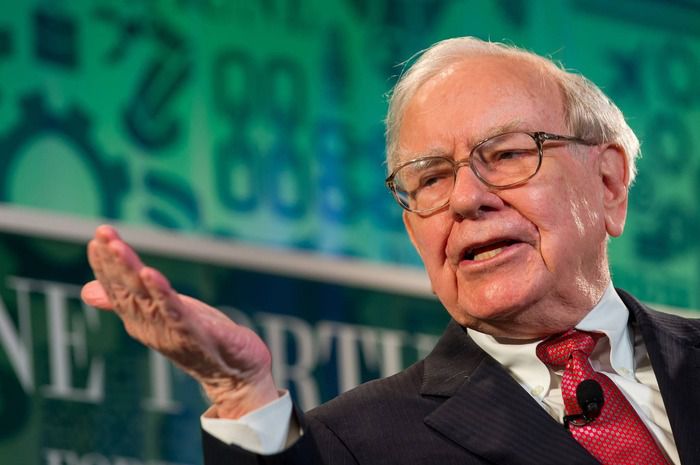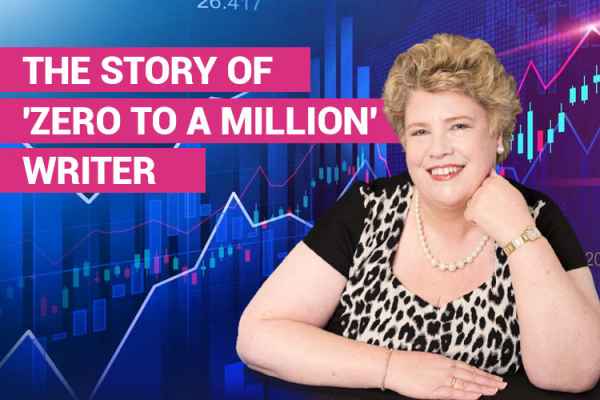Despite its popularity, the use of stop loss in stock trading is opposed by the world billionaire Warren Buffet. Why is that?

Stop loss is basically an order that will automatically close a position once the price reaches a certain level. The purpose is to prevent the trader from getting too much loss from a losing trade.
However, the world billionaire Warren Buffett seems to strongly disagree with that statement. Warren Buffett stated that he's against using stop loss for his trades because of its short-term focus.
Moreover, what he actually does is more of an investment rather than trading. Buffett considers stop loss to be not suitable for investing.
This is certainly an interesting take on the use of stop loss since many traders today still rely on it. Before we go deeper into Buffett's thoughts, let's get to know his background first.
Who is Warren Buffett?
Warren Buffett is one of the greatest stock investors of all time. According to Forbes, he is the fifth richest person in the world with a net worth of $124.3 billion as of April 2022.
Apart from that, Buffett is also known as a businessman and a philanthropist. So, it is unsurprising that his investment strategy is often used as a reference or guidance for other investors. This is why he's often referred to as "the Oracle of Omaha".
Since his early days, Buffett had already been interested in the business world and stock investment. He began his career as an investment salesperson back in the early 1950s and created his own company called Buffett Associates in 1956.
Then, less than a decade later, he was in control of Berkshire Hathaway. Today, the company owns more than 60 other companies, including restaurant chain Dairy Queen, battery maker Duracell, and insurer Geico.
Buffett's Philosophy Is the Contradiction of Stop Loss
When it comes to investment strategy and philosophy, Warren Buffett essentially follows the Benjamin Graham school of value investing. Value investors basically search for assets with prices that are unjustifiably low based on their intrinsic worth, which usually is the fundamental analysis result of the company.
Instead of worrying about the supply and demand of the market, Buffett's more interested in looking at each company as a whole. Thus, he chooses his stock investments solely based on the overall potential of the company.
He likes to hold the asset in the long term because he believes in the quality of the company and that the company will be able to make good money in the future.
Stop Loss is for Trading, Not Investing
Warren Buffett mentioned his view about stop loss in his 1994 annual meeting. He recalled the time when he was talking to Berkshire Hathaway's NYSE specialist, Jimmy Maguire.
At the time, the stock price was at about 16,000 or so and Maguire said that he had some stop loss orders going on at around 15,500, involving hundreds of shares.
The CEO of Berkshire Hathaway then expressed his concerns about having people with such a mindset in his company. He questioned the reason why people are okay with selling the stock at 15,500 when you can actually sell it at 16,000.
He jokingly said, "The lower it went, the better they liked it, apparently. I mean, the better they liked the sale."
"It has always struck me as like having a house that you like, and you're living in, and, you know, it's worth $100,000 and you tell your broker, You know, if anybody ever comes along and offers $90 [thousand], you want to sell it," Buffet continued, "It doesn't make any sense to me."
He believed that investors that would trade Berkshire stocks that way are either using stop loss orders or having a "non-investment-type of calculations" in their heads. And these are not the kind of investors that he would personally like to attract.
He stated that if you have enough people like that in a company, the stock prices would be more volatile than if you have people who are planning to hold on to the asset for the rest of their lives.
To put it simply, Warren Buffett is against the idea of using stop loss order in general because it's short-term oriented. Another reason is that he firmly believes it's impossible to try timing the market.
The billionaire says that an investor shouldn't try to trade stocks, but invest in them steadily over time. This is why instead of seeing price drops as an urgency to use stop loss, he views it as an opportunity to buy more shares at a lower price.
Final Words
Warren Buffett does not encourage long-term investors to use a stop loss. Setting a stop loss simply increases the chance that you will end up selling the stock at a bad price due to a temporary market downturn.
Rather than seeking capital gain, Buffett prefers holding to an asset in a long term and getting ownership in quality companies that are highly capable of generating high returns.
Therefore, if you want to follow Buffett's path to success, it is extremely important to be able to perform fundamental analysis on a company. This usually involves analyzing the company's performance, debt, profit margin, and more.
At the end of the day, the credibility of Warren Buffett's strategy is unquestionable. However, the choice of whether you want to use it in your trades is completely up to you. It might not suit everyone, so make sure to do your research beforehand and see if the strategy really works for you.

 Dedicated FREE FOREX VPS
Dedicated FREE FOREX VPS Free FOREX Virtual Private Server
Free FOREX Virtual Private Server MT4 Demo Contest, Get $500
MT4 Demo Contest, Get $500 Sign Up for an Account, Claim 60% Deposit Bonus
Sign Up for an Account, Claim 60% Deposit Bonus Free MT4/MT5 VPS 2024
Free MT4/MT5 VPS 2024 Send E-mail and Get Free Merchandise
Send E-mail and Get Free Merchandise $1K Refer a Friend Bonus for Pepperstone Pro clients
$1K Refer a Friend Bonus for Pepperstone Pro clients Maximize Your Earnings with 100% Deposit bonus
Maximize Your Earnings with 100% Deposit bonus Trade to Win, $5,000 Monthly Demo Contest
Trade to Win, $5,000 Monthly Demo Contest Claim 30% + 15% Deposit Bonus from LiteFinance
Claim 30% + 15% Deposit Bonus from LiteFinance



























1 Comment
Yrianto
Oct 29 2022
I think Warren Buffett is right. Sometimes we think stop loss prevents us from making a profit and forces us to sell our investment at a bad price.As mentioned in this article, stop loss is actually a great money management tool. and is a tool for traders to avoid being greedy. But in my experience, I think stop loss is very annoying (maybe my bad prediction). A position may be stopped and closed simply because the market is very volatile. Therefore, once the stop loss is reached, it will go up or vice versa within a few seconds. It creates an unnecessary sense of loss. Whether or not to use a stop loss in scalping, I am not sure if the results will be profitable, but if our trading method is long term, I think I will try Warren Buffett's advice